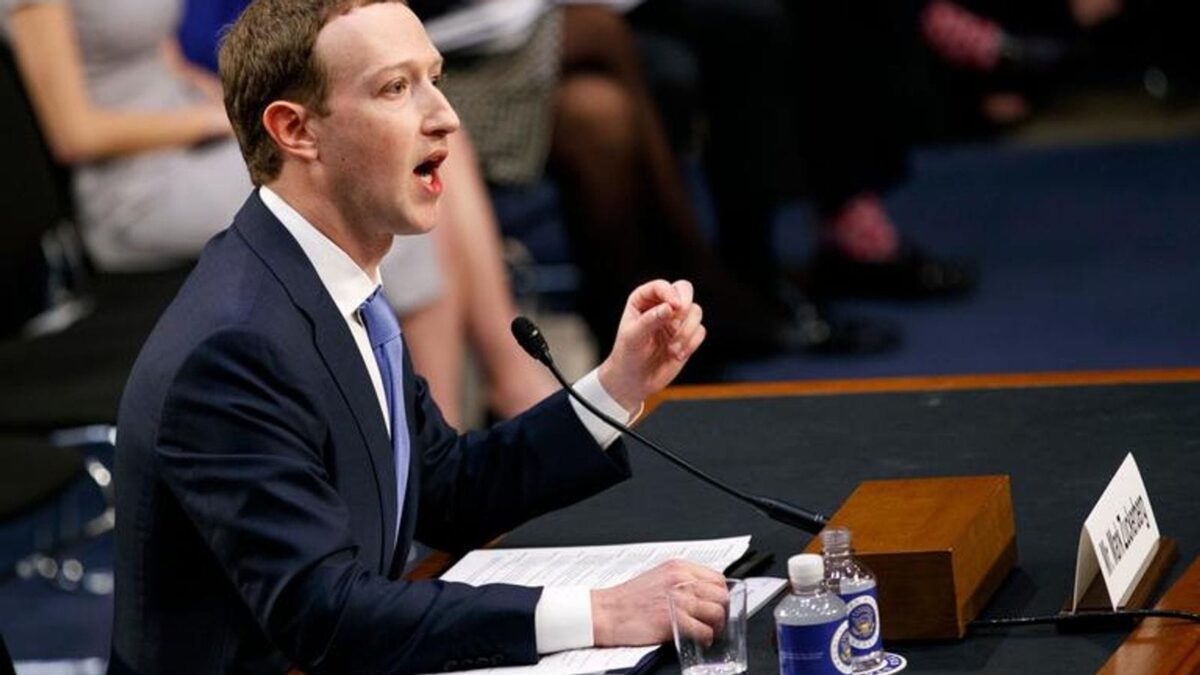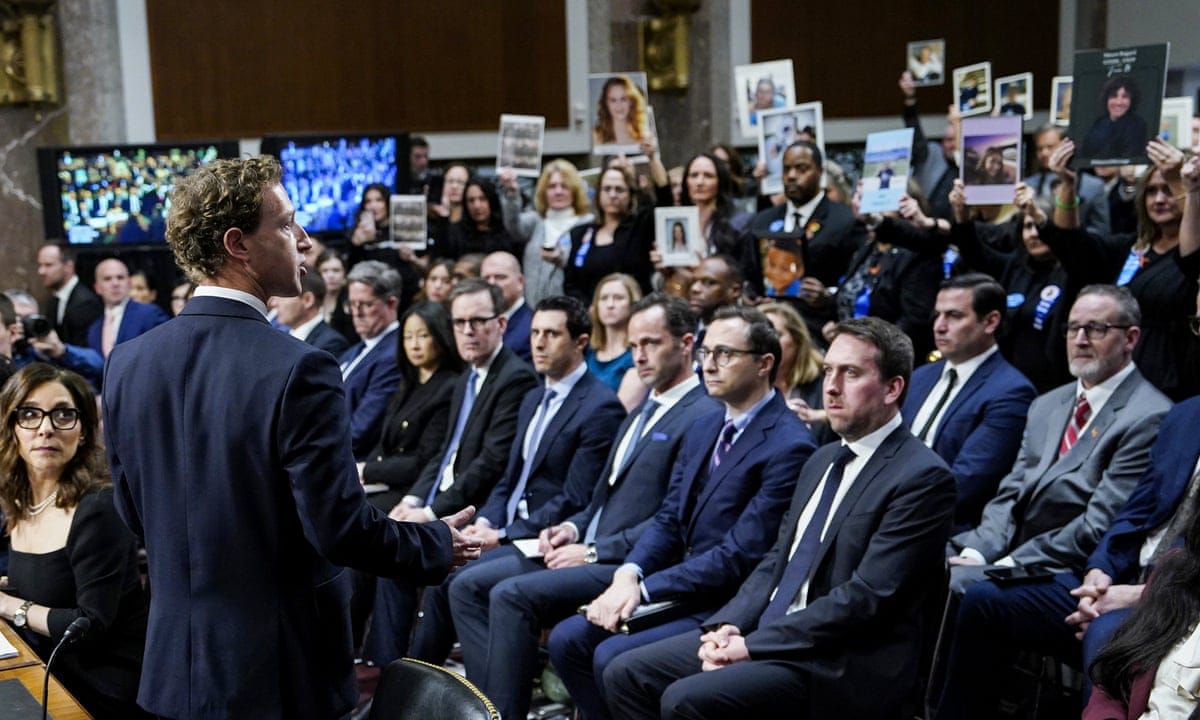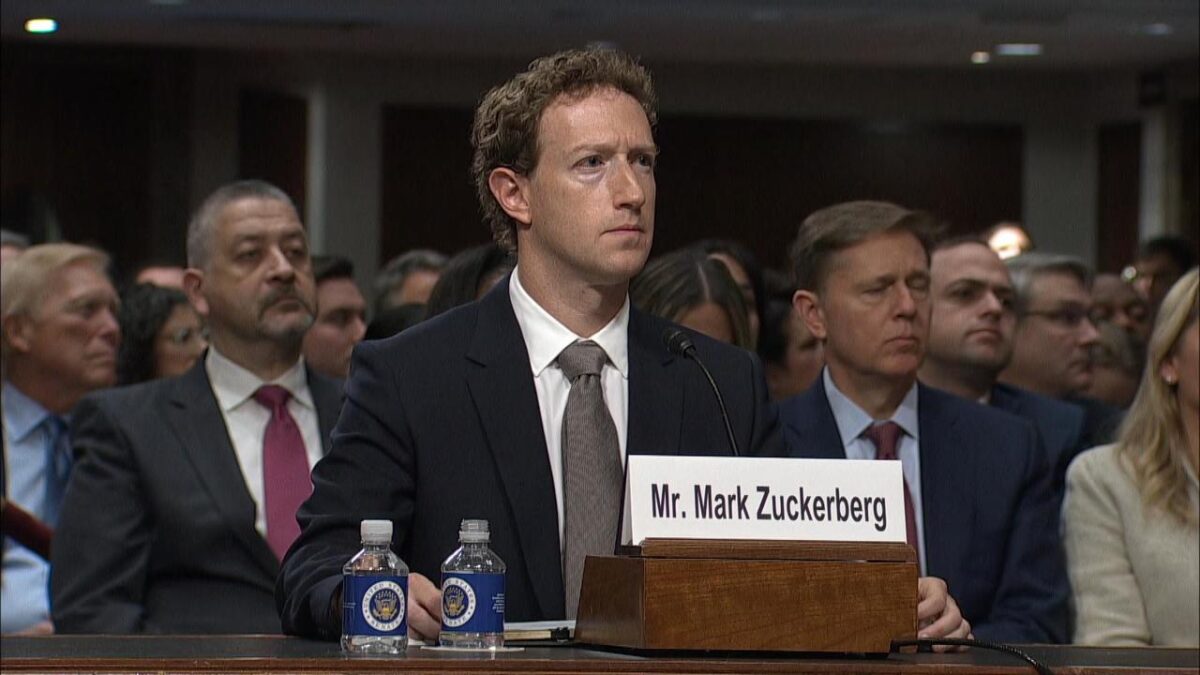Zuckerberg the CEOs of Meta, X (formerly Twitter), Snap, TikTok, and Discord found themselves under intense scrutiny during a four-hour hearing, accused of failing to adequately protect minors from online sexual abuse. Republican Senator Lindsay Graham didn’t mince words, accusing these companies of having “blood on their hands” as anguished parents of affected children looked on.
Acknowledging their shortcomings, the CEOs defended their platforms and outlined measures taken to enhance safety while pushing back against certain criticisms. The senators didn’t hold back, chastising the CEOs for lobbying efforts that hindered federal legislation, drawing applause from grieving families who had lost children to the darkest corners of these platforms.

The Senate Judiciary Committee convened the hearing to rally support for federal legislation aimed at safeguarding children online. Present at the hearing were X’s Linda Yaccarino, TikTok’s Shou Chew, Snap’s Evan Spiegel, and Discord’s Jason Citron, signaling a unified front in addressing the urgent concerns surrounding child safety in the digital realm.
The hearing unfolded against a backdrop of mounting apprehension about the dangers faced by young people online. The proliferation of child sexual abuse material online has surged alarmingly over the past decade, with daily cyber tips skyrocketing to 100,000 in 2023, according to the National Center for Missing & Exploited Children.
Moreover, there’s growing apprehension about the detrimental effects of social media on mental health. U.S. Surgeon General Vivek Murthy underscored the lack of conclusive evidence regarding social media’s safety, highlighting mounting evidence linking its use to harm in young people’s mental well-being.
The presence of parents at the hearing served as tangible evidence of these pressing issues, driving home the urgent need for action, as articulated by the senators. As the debate intensifies, the imperative to safeguard the well-being of young users in the digital landscape remains paramount.

Zuckerberg’s Apology: A Moment of Contrition
Mark Zuckerberg, the face of Facebook, stood before families holding pictures of children allegedly harmed by social media, offering a heartfelt apology. “I’m sorry for everything you have all been through,” expressed the Facebook founder, acknowledging the profound suffering endured by their families.
Joined by chief executives of TikTok, X, Discord, and Snap, Zuckerberg faced a barrage of questions from hostile US lawmakers during the session titled “Big Tech and the Online Child Sexual Exploitation Crisis.” In his opening statement, Zuckerberg emphasized the ongoing efforts to provide support and controls for parents and teens, underscoring the evolving nature of online threats and the necessity to adapt defenses accordingly.
The hearing represented a pivotal moment as Snap’s CEO, Evan Spiegel, testified on Capitol Hill for the first time, responding to allegations surrounding Snapchat’s impact on children’s mental and physical well-being. As the dialogue transitions from rhetoric to action, the imperative to prioritise the safety and well-being of young users remains at the forefront of regulatory discourse.
Snapchat Faces Lawsuit: Allegations of Harm
CEO Evan Spiegel expressed deep regret over the platform’s misuse and voiced support for the Kids Online Safety Act (KOSA), which seeks to provide legal recourse for those harmed by social media companies.
Spiegel urged industry-wide backing for legislation aimed at protecting children online, emphasizing the need for regulatory measures. Ahead of their testimonies, Meta and X (formerly Twitter) announced steps to mitigate the impact on young social media users. Meta, owner of Facebook and Instagram, revealed plans to block direct messages to young teens from strangers, while restricting interactions to those they already follow or are connected to.
In summary, the recent congressional hearing exposed the critical need for stronger measures to protect minors from online exploitation. Despite CEOs acknowledging shortcomings and outlining efforts to enhance safety, bipartisan criticism underscored the urgency for comprehensive legislative action.
With rising concerns over the proliferation of online sexual abuse material and its impact on mental health, the imperative to prioritize child safety is evident. Mark Zuckerberg’s apology and Evan Spiegel’s support for the Kids Online Safety Act signal a pivotal moment in industry accountability.
As discussions progress and legislative initiatives gain momentum, collaboration between policymakers and tech companies is paramount. By implementing robust safeguards and prioritizing user safety, stakeholders can work towards creating a safer digital landscape for children worldwide.



